How to Choose Between Regular & Decaf Coffee |
 Print this page Print this page
|
How to Choose Between Regular & Decaf Coffee
Navigating the world of coffee can be a tad confusing, especially when faced with the decision between regular and decaf options. While both beverages stem from the same roasted coffee beans, the key difference lies in their caffeine content.
Regular coffee retains its natural caffeine levels, offering that much-needed jolt to kickstart your day. Decaf, on the other hand, undergoes a special process to remove most of its caffeine, making it a go-to choice for those who prefer a milder experience.
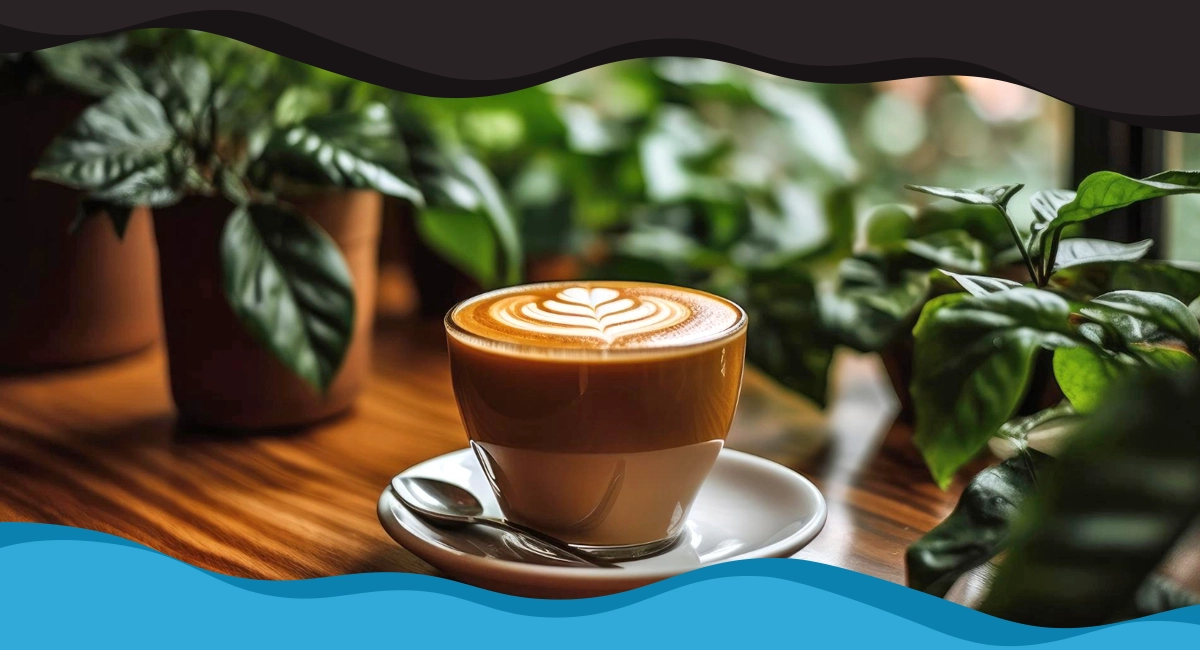
Understanding Coffee & Caffeine
Coffee, a brewed beverage made from roasted coffee beans, has an enduring history that dates back to ancient Ethiopia. Legend has it that a shepherd discovered the stimulating properties of coffee after observing his goats dancing joyfully upon consuming coffee cherries. Fast forward to today, and coffee has become a global phenomenon, celebrated not just for its robust flavours but also for its key active ingredient: caffeine.
Caffeine is a natural stimulant that belongs to the xanthine class of chemicals, affecting the central nervous system to increase alertness and reduce the perception of fatigue. In coffee, it acts as a natural pesticide, protecting the plant while offering the characteristic 'kick' that many seek. However, not everyone tolerates caffeine well, which leads us to decaffeinated coffee.
Decaffeinated coffee, commonly known as decaf, undergoes a specific process to remove at least 97% of its caffeine content. It allows coffee enthusiasts to enjoy the smooth flavours and rich aromas without the jittery side effects.
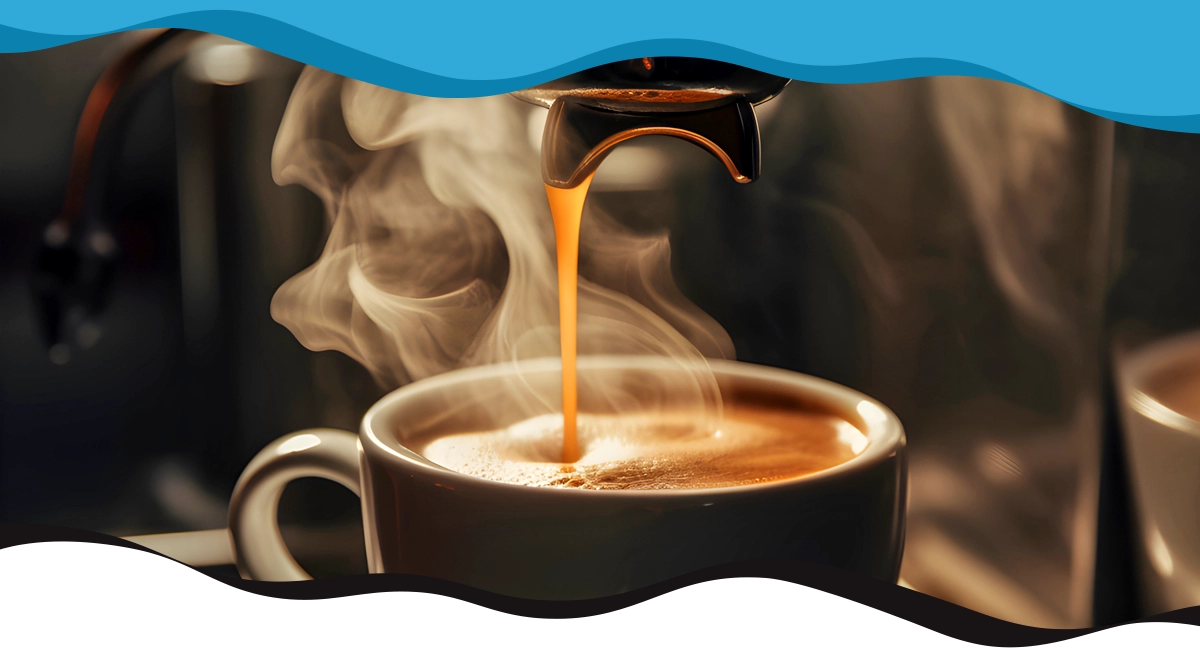
Decaf Coffee: The How and Why
The journey of transforming regular coffee into decaf begins with the decaffeination process. There are several methods to achieve this, but the most commonly used are the solvent-based, Swiss Water, and carbon dioxide methods.
In solvent-based methods, chemicals like ethyl acetate or methylene chloride are used to selectively bond with caffeine molecules and extract them from the coffee beans.
The carbon dioxide method utilises high-pressure CO2 to separate caffeine from the beans, preserving more of the original flavour.
The Swiss Water process, on the other hand, relies on water and activated charcoal filters to remove caffeine without the use of chemicals, and results in perhaps the best tasting flavour profile for decaf.
But why do people choose decaf over regular coffee? One of the primary reasons is caffeine sensitivity. Some individuals experience palpitations, anxiety, or digestive issues when they consume caffeine as their bodies are a lot more sensitive to caffeine than the majority of people. Decaf is therefore a great choice for these individuals, as it offers the experience and taste of coffee without the effects of caffeine.
Personal preference also plays a role; some people simply like the smoother, less acidic profile of decaf. Health considerations are another factor. For instance, pregnant women or individuals with certain medical conditions, such as acid reflux or high blood pressure, often opt for decaf to enjoy coffee in a way that’s compatible with their doctor's recommendations around caffeine consumption.
Decaf is also a popular option for people who want to enjoy a great tasting coffee later in the day or evening, but don’t want to feel the boost of energy that caffeine can deliver as they start to wind down before bed.
In essence, choosing decaf is a personal decision guided by factors like health, taste preference, time of day, and one's ability to metabolise caffeine.

Regular Coffee: The Bold Tradition
Regular coffee has long been the traditional choice for those seeking a burst of energy and a rich, complex flavour profile. One of the elements that make regular coffee special is its full retention of caffeine, a natural compound that not only stimulates the nervous system but also contributes to the beverage's taste.
Caffeine adds a certain bitterness to coffee, which when balanced with its other flavour compounds, results in a well-rounded, vibrant cup that many find irresistible.
The Benefits Of Drinking Regular Coffee
The presence of caffeine often heightens the sensory experience of drinking coffee. It stimulates alertness and focus, making regular coffee a popular choice for kick-starting mornings or pushing through afternoon slumps. But it's not just about staying awake; caffeine can also enhance physical performance by increasing adrenaline levels, making it a favourite among athletes.
Potential Drawbacks
However, regular coffee is not without its caveats. The caffeine content can be a double-edged sword. Consuming it late in the day can interfere with sleep patterns and lead to insomnia for some individuals.
While there are a range of health benefits linked to coffee, excessive consumption can also result in a range of side effects like palpitations, increased blood pressure, and digestive discomfort. Like its decaffeinated counterpart, the suitability of regular coffee ultimately hinges on individual preferences and health considerations.
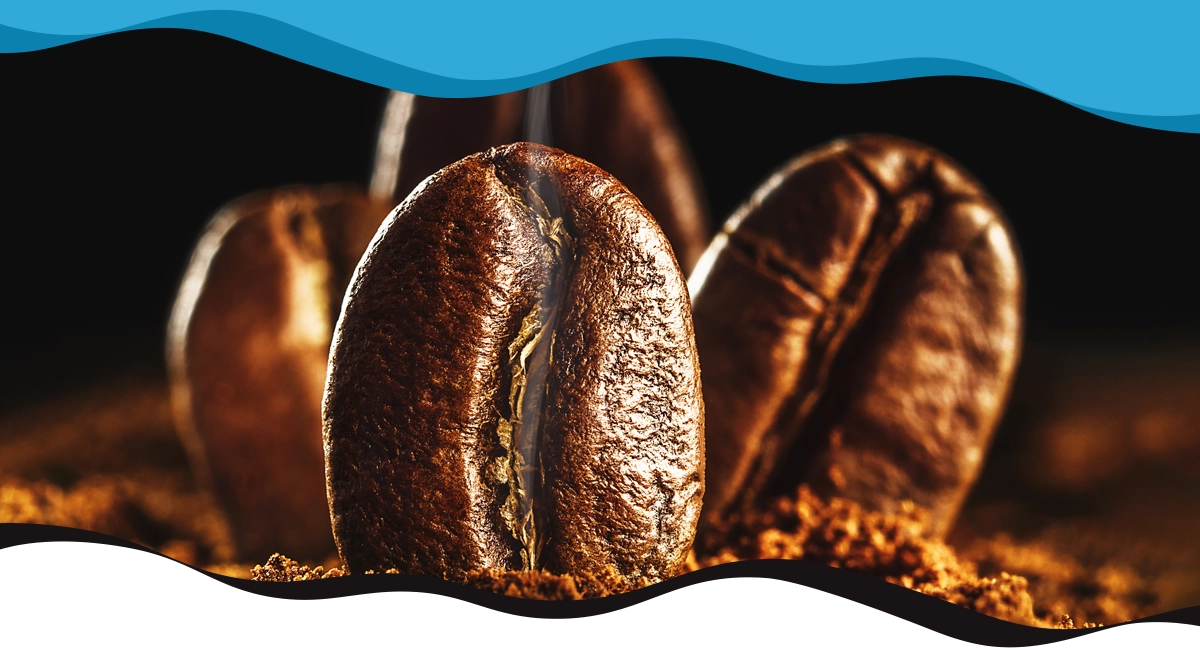
Comparing Taste Profiles: Regular vs Decaf
When it comes to flavour, both regular and decaf coffees offer a wide array of taste profiles, depending on factors like the bean's origin, roasting process, and brewing method.
Regular coffee often tends to have a fuller, more robust flavour, punctuated by the bitterness imparted by caffeine. This bitterness can accentuate other flavour notes like acidity, fruitiness, or nuttiness, making each sip a complex sensory experience.
Decaf coffee, by contrast, often presents a milder flavour profile. The absence of caffeine's bitter notes can result in a smoother, less acidic cup, which appeals to many who find regular coffee too overpowering.
Impact of Decaffeination on Taste
The process of decaffeination can indeed affect the taste of the coffee, but not necessarily in a negative way. Some methods, particularly solvent-based processes, may remove not just caffeine but also some flavour compounds, potentially resulting in a less vibrant cup.
However, alternatives like Swiss Water decaf coffee are produced to retain as much of the bean's original character as possible, leading to a cup that offers a taste that is as good as, if not better than, its caffeinated counterpart.
Debunking the 'Tasteless' Myth
There's a common misconception that decaf coffee is tasteless or inferior in flavour compared to regular coffee. This is far from the truth. Advances in decaffeination technology have enabled the production of decaf coffee that closely mimics the taste of regular coffee.
Specialty decafs have emerged, which offer the same range of fruity, floral, or nutty notes that one would expect from high-quality coffee beans that have not been decaffeinated.
When deciding which to drink, individuals should consider that both regular and decaf coffee have their unique taste profiles, influenced by caffeine content and the methods used in their production. While decaf may sometimes have a milder profile, it is certainly not lacking in flavour, and offers a worthy alternative for those who prefer to avoid caffeine.
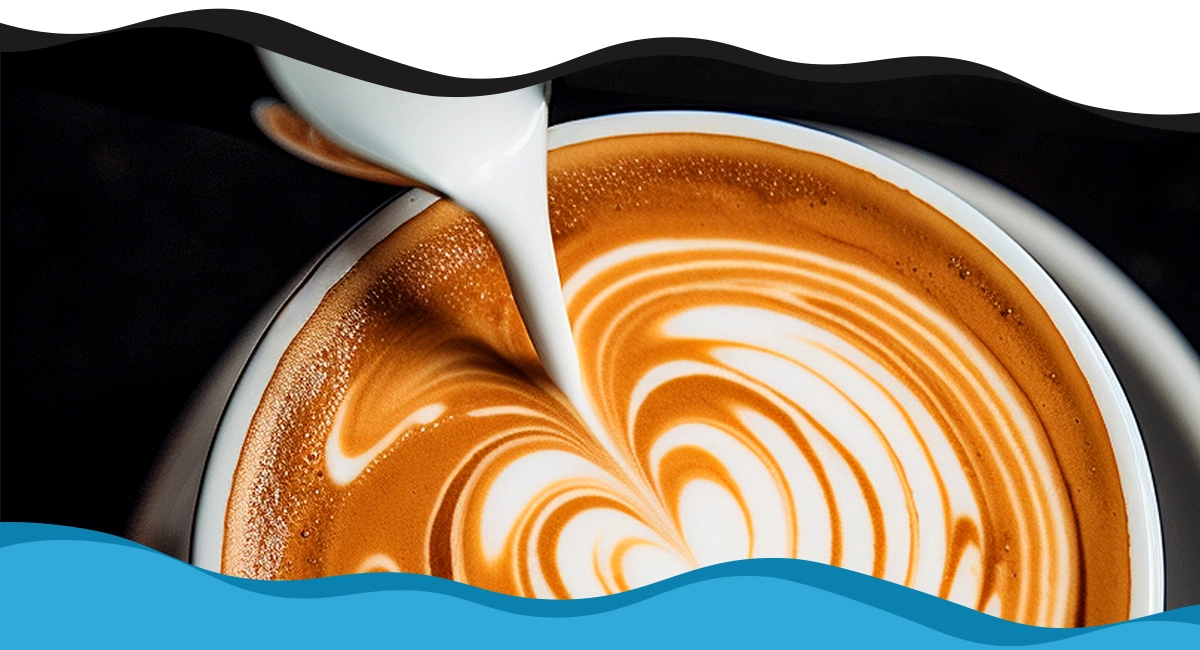
Health Considerations: Is Decaf Better For You?
Caffeine Coffee - Health Considerations
Caffeine, the natural stimulant found in coffee, comes with a variety of health effects. Positively, it enhances cognitive function, increases alertness, and may even have fat-burning properties. Regular coffee has also been linked to a lower risk of diseases such as Parkinson's and Type 2 diabetes.
On the flip side, over-consumption of caffeine can lead to increased heart rate, high blood pressure, and digestive issues. For some, it may cause sleep disturbances and heightened anxiety.
Decaf Coffee - Health Considerations
In contrast, decaf coffee offers a caffeine-reduced option, retaining most of the antioxidants found in regular coffee. This makes it a suitable choice for individuals with specific health conditions like certain heart arrhythmias or acid reflux.
However, it's worth noting that some decaffeination processes use chemical solvents, which could be a concern for some. It’s therefore worth seeking out high quality decaf options that have been prepared using natural processes such as the Swiss Water method.
Picking Caffeine vs Decaf
Ultimately, whether decaf or regular coffee is better for you depends on your personal health conditions, how well you tolerate caffeine and the reasons you enjoy coffee. Those with high blood pressure might opt for decaf, while others who seek the metabolic and alertness-boosting benefits of caffeine may stick to regular coffee.
However, it’s not necessary to fall solely into one camp. For a lot of coffee lovers, the flexibility to enjoy caffeinated coffee when they want to, whilst also being able to opt for a decaf at certain times, means they will be consumers of both types.
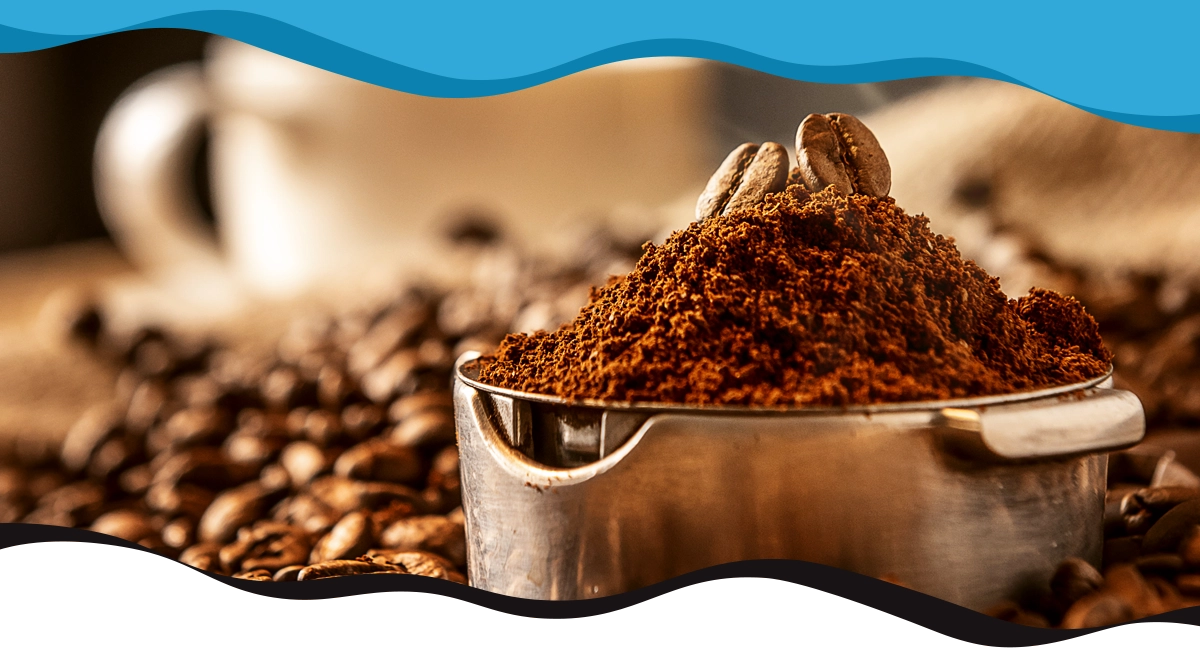
Decaf or Regular Coffee: Making The Choice
When it comes to choosing between drinking a regular or decaf coffee, several factors come into play that can influence your decision.
Caffeine Sensitivity
One of the most obvious is caffeine sensitivity. If you find yourself jittery, anxious, or having trouble sleeping after a cup of regular coffee, switching to decaf might be a better option for you. Conversely, if you rely on that caffeine boost to kickstart your day or improve focus, regular coffee could be the ideal choice.
Taste Preference
Taste preference is another important consideration. As we've discussed earlier, the two types of coffee offer different taste profiles. If you enjoy a fuller, more robust flavour with a complexity heightened by caffeine, you might prefer regular coffee. On the other hand, if you're more inclined towards a milder, smoother taste, decaf may well be your cup of tea—or rather, coffee.
Health Factors
Your overall health should also be a determining factor. For instance, if you are pregnant, or have conditions like high blood pressure or certain heart issues, decaf would likely be the safer option. However, if you're in good health and enjoy the antioxidants and other benefits associated with regular coffee, there's no reason to switch.
Lifestyle
Lifestyle is the final factor worth considering. If you lead a high-stress life and think caffeine exacerbates your stress levels, decaf might be a wiser choice. Alternatively, if your lifestyle demands high energy levels and sharp focus, the caffeine in regular coffee can be beneficial to your alertness and productivity throughout the day.
There's no universal 'better option' between decaf and regular coffee; it's all dependent on your personal preference and individual circumstances. Both types of coffee offer unique experiences and benefits, so why limit yourself to just one?
Whether you're a decaf devotee or a regular coffee enthusiast, the important thing is to enjoy your brew of choice to the fullest.

FAQs
How Much Caffeine Should I Have A Day?
The NHS recommends up to 300mg of caffeine a day for most adults, roughly equivalent to four cups of brewed coffee.
Which Coffee Type Has The Most Caffeine In Them?
An espresso typically contains the most caffeine, ranging from 60 to 100mg per shot. Espresso is used as the foundation for most coffee based drinks.
Is Decaf Coffee Healthier?
The healthiness of decaf coffee depends on individual health conditions. Decaf can be a better option for those sensitive to caffeine or with certain medical conditions.
Is Decaf Coffee Bad For Me?
Generally, decaf coffee is not bad for you but it depends on how it's decaffeinated. Some methods use chemical solvents, which may not be ideal for everyone, while options like Swiss Water decaf do not use these chemicals.
Does Decaf Have Any Caffeine In It?
Decaf coffee contains very little caffeine — usually about 2-5mg per 8-ounce cup, compared to 95mg in regular coffee.
Does Decaf Coffee Wake You Up?
Decaf coffee can help to wake you up, but less so than regular coffee. The other compounds in coffee can have a mild stimulating effect.
Is Decaf Coffee Good For Acid Reflux?
Decaf can be easier on the stomach and less likely to trigger acid reflux compared to regular coffee.
What Coffee Is Best For Your Stomach?
Low-acid coffee varieties or cold brews are often recommended for sensitive stomachs.
How Much Caffeine Is In A Standard Coffee?
A standard 8-ounce cup of brewed coffee typically contains approximately 95mg of caffeine.
How Much Caffeine Is In A Latte?
A latte usually contains about the same amount of caffeine as a standard coffee, around 95mg, depending on the number of espresso shots used.
Does Tea Have More Caffeine Than Coffee?
Coffee generally contains more caffeine than tea. An 8-ounce cup of coffee has about 95mg of caffeine, compared to 30-50mg in tea.
Why Do People Prefer Decaf?
Reasons surrounding why people prefer decaf vary from caffeine sensitivity and health concerns to simply preferring the taste.
Is Decaf Coffee Better For Anxiety?
Decaf can be a better option for those with anxiety issues, as caffeine can exacerbate symptoms.
Does Decaf Coffee Hydrate You?
The diuretic effect of caffeine is minimal, so decaf can contribute to your daily fluid intake.
What Is The Healthiest Method Of Decaf Coffee?
The Swiss Water Process is generally considered the healthiest decaffeination method, as it doesn't use chemical solvents.
Is Regular Coffee Better Than Decaf For Liver?
Some studies suggest that the caffeine in regular coffee may have liver-protective properties, though more research is needed.
Does Decaf Coffee Suppress Appetite?
Decaf Coffee doesn’t suppress appetite, it's the caffeine in regular coffee that may have a mild appetite-suppressing effect.
Is Decaf Coffee Better Than Regular Coffee For Cholesterol?
Unfiltered coffee, like French press or espresso, contains natural oils (cafestol and kahweol) from coffee beans which have been linked to increased levels of LDL cholesterol. However, decaf coffee has been shown to have a less significant impact on cholesterol levels compared to regular coffee, so may be a good option for those wanting to reduce their cholesterol levels.